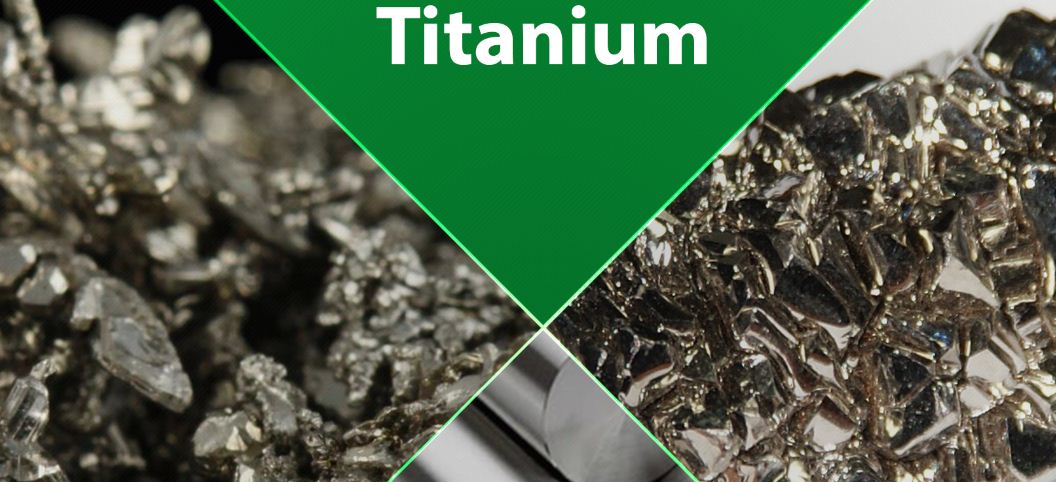Crude Oil Mineral Resources in Nigeria and the States deposits

Nigeria has the richest crude oil deposits in Africa and the 4th in the World; it is the 6th largest producer of crude oil and the 5th largest supplier of crude.
Nigeria is the largest producer of sweet oil in OPEC, the Nigerian grade of crude oil is described as light because of its relatively low density, and sweet because of its low sulphur content otherwise known as Bonny Light crude oil (BLCO).
These oil deposits are mainly found in the Niger Delta of Nigeria which comprises the south-south region and some parts of the south-east and few states in the south-west of the country which includes Abia, Akwa Ibom, Rivers, Delta, Bayelsa, Cross River, Imo, Anambra and Ondo State.

Formation of crude oil
Crude oil typically means unrefined petroleum. Petroleum is a fossil fuel found underground formed millions of years ago as a result of the decomposition and pressurization from the remains of small animals and plants (algae, plankton, and other organisms).
The remains which are covered by mud begin to pile up forming more and more sediment.
Thus, leading to its change into rock due to an increase in temperature and pressure which in turn makes the plant and animal remains get heated up turning it into crude oil which is a mixture of hydrocarbons (hydrogen and carbon).
These hydrocarbons in the rock strata can be conveniently extracted and refined to produce fuels like diesel oil including paraffin, gasoline, and petrol.
Crude oil extraction
Crude oil Extraction begins with the drilling of wells into the underground reservoir and with the use of a drill bit breaks through the ground bringing the particles to the surface using drilling fluid, a perforated casing is added in the production zone for the oil to flow into the well.
The drilling rig is removed and pumps installed once the well is complete. The pump then removes the oil and distributes it to a network for transportation to the refinery.
The refining process is carried out using fractional distillation, the petroleum is subjected to heat at about 700oF making the crude oil disintegrate into various components or fractions at a certain boiling point range.
Crude Oil Drilling and Separating Machines
Oil drilling rig machine/well drilling equipment: the machine is used for drilling crude oil from its mining site.
Wellhead drilling crude oil and gas filter separator /mud cyclone desander: is a digitalized three-phase separation machine whose function is to separate waste products mixed with crude oil.
Crude oil components and boiling range
Below is the table of crude oil components and their different boiling range.
|
Component
|
Boiling point |
|
Fuel Gas, LPG, refinery gas |
< 25oC
|
|
Gasoline - petrol |
25oC – 75oC
|
|
Naphtha |
75oC – 190oC
|
|
Paraffin, kerosene |
190oC – 250oC
|
|
Diesel oil, gas oil |
250oC – 350oC
|
|
RESIDUE (fuel oil, lubricating oils, waxes) |
>350oC |
|
Bitumen |
500oC – 700oC
|
Refiners should use more sophisticated additional processes and equipment in order to produce the mix of products that the market demands.
Types of crude oil
It will seem strange to some persons on realizing that they are really types of crude oil.
Well, crude oil comes in different types. These types depend on the solidity and stability of the oil at the time of its extraction.
For clarity, it is good to know the basis, terms, or factors for the classification of crude oil. These include;
Volatility.
The term volatility has to do with the speed at which the crude oil in question evaporates.
If the crude oil is extracted has a high volatility rate, it is pertinent for the extractors to take serious measures to avoid losing much oil as a result of vapor.
Toxicity
Toxicity has to do with the harmfulness or poisonousness of the oil in the environment in which it is extracted or refined.
If there is any case of spillage of the oil, knowing the toxicity will enhance measures to reduce its harmfulness in the environment.
Viscosity
Viscosity has to do with the ease or difficulty of the oil to flow. Therefore, any crude oil with high viscosity tends to be very difficult to flow.
The four major types of crude oil include;
Heavy fuel oil
This type of oil is known to be the slightest volatile of all the other types of oil. It is also the most vicious as well as the most toxic of them all.
Heavy fuel oil is used for heavy maritime fuel as well as the heaviest crude oil products 3, 4, 5, and 6 fuel oils. In case of a spill, heavy oil can severely contaminate fur creatures, fish, and fowl.
Medium oil
Medium oil has a higher viscosity in addition to low volatility. Because of these features of medium oil, it is more unsafe and toxic.
Frequent cleanup of medium oil possess quite a lot of challenges to the people handling it.
Light oil/middle distillates
Light oil is reasonably volatile and toxic. Because of its moderate nature, it is used for domestic fuel oils, fuel oils of grade 1 and 2 as well as diesel fuel.
Very light oil/ light distillates
This type of oil is less toxic and very volatile. As a matter of days, it evaporates totally.
Very light oil is used in producing kerosene, gasoline, petroleum spirit, jet fuels, heavy and light virgin Naphtha, and lots more.
Kinds of oil traded in today’s market
In today’s crude oil market, you can find over 160 kinds of crude oil been offered for sale.
However, for the sake of simplicity, we are going to discuss the most popularly traded ones.
West Texas Intermediate (WTI)
West Texas Intermediate (WTI) as it is popularly called is the most popular kind of crude oil.
Its popularity is as a result of the fact that it has quite a high quality.
Its quality is so valued because you can refine more gasoline and even better ones from just one barrel unlike the other types of crude oil in the market.
WTI is a sweet crude oil because it has 0.24 percent of sulfur. It is also a light crude oil because it has an API gravity of 39.6 degrees.
API stands for American Petroleum Institute. API gravity is a measure that relates the lightness or heaviness of crude oil as it relates to water.
OPEC basket oil
OPEC basket oil comprises crude oils from the Mexican Isthmus, Dubai, Algeria, Indonesia, Nigeria, Venezuela, and Saudi Arabia.
OPEC stands for “Organization of Petroleum-Exporting Countries”. OPEC basket oils are usually sold at a low price because they have great content of sulphur and are not natural light.
However, this kind of oil is always in the market because the countries involved are consistent.
Brent blend
Brent blend is located in the North Sea and is a combination of the Ninian system and Scottish blent.
Its API gravity is 38.3 degrees because it is a light crude oil and contains 0.37 percent sulfur.
This kind of oil is good for producing gasoline and it is a standard from other kinds of crude oil in Africa and Europe.
Price of crude oil in today’s market
It is important to note that crude oil’s prices change by day but presently its price is as follows;
. 1 Barrel = 42 Gallons Oil (WTI) Price Per 1 Gallon; 0.59 USD
. 1 Barrel ≈ 0,136 Tonnes of Crude Oil, Oil (WTI), Price Per 1 Ton; 181.69 USD
. 1 Barrel ≈ 158,98 Liters Oil (WTI) Price Per 1 Liter 0.16 USD
. 1 Barrel = 336 Pint Oil (WTI) Price Per 1 Pint 0.07 USD
Prices of other kinds of oil
PRICE CHG CHG%
WTI Crude 33.70 +0.45 +1.35%
Brent Crude 35.57 +0.04 +0.11%
Ethanol 1.170 +0.065 +5.88%
Natural Gas 1.791 +0.060 +3.47%
Gasoline 1.0410 +0.0028 +0.27%
Heating Oil 0.9873 +0.0053 +0.54%
Gold 1707.4 -27.2 -1.57%
Top oil producers in the world
There is quite a large number of oil producers in the world but the recent top 10 producing countries are as follows;
Russia (10,500,000 barrels a day)
Saudi Arabia (10,460,000 barrels a day)
USA (8,875,000 barrels a day)
Iraq (4,450,000 barrels a day)
Iran (3,990,000 barrels a day)
China (3,980,000 barrels a day)
Canada (3,660,000 barrels a day)
UAE (3,100,000 barrels a day)
Kuwait (2,900,000 barrels a day)
Brazil (2,500,000 barrels a day)
The uses of petroleum
- It is used as a transportation fuel, heating, and electricity generation like gas, petrol, and diesel.
- Jet fuel is used in aircraft and due to its similarity to diesel fuel can be used in either compression ignition engines or turbine engines.
- It is used as a cooking fuel such as kerosene.
- The bitumen or asphalt is used to pave or tar roads as a binder for gravel to form asphalt concrete.
- Naphtha is used in paints, rubber industry solvents, cleaning fluids, varnish and asphalt diluents, portable camping stoves, cigarette lighters, and lantern fuels.
- Natural gas is also used in steam crackers and reformers as a major feedstock to produce hydrogen, ethylene, and other Olefins.
- Paraffin wax is a by-product of the refining of lubricating oil and is used as a lubricant and for other applications such as cosmetics.
- It is used to produce sulphur since some crude oil has a little sulphur content.
- It’s also used in the production of Carbon (in the form of petroleum coke), and hydrogen which may also be produced as petroleum products, and lots more.
A brief history of crude oil
Just like other fossil fuels, crude oil has always been harvested over the years.
It was only in the 19th century that its industry usage began. At this period, the invention of machines began and it led to the massive production of crude oil across the globe.
In the 20th century, The United States are taking the lead in crude oil production followed by Saudi Arabia, and Russia.
Summary
Across the globe, people believe that crude oil is one of the most valuable commodities in the world owing to the fact that it is a key source of energy creation.




